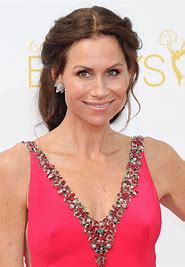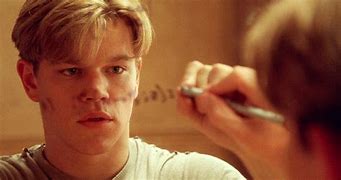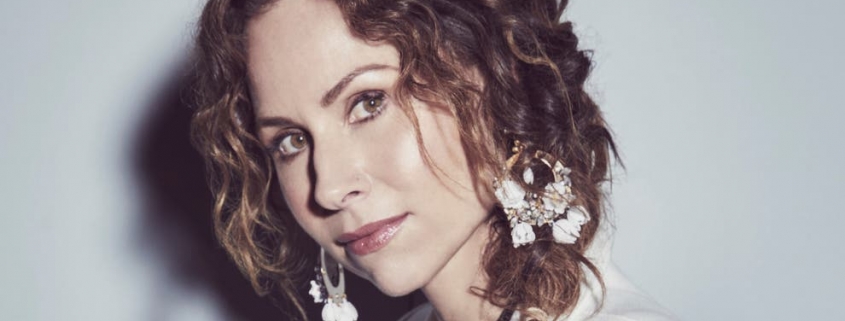Day four of Sidetracks And Detours´ inaugural Here´s To The Ladies in-print Festival featuring MINNIE DRIVER: ´a no-nonsense conversationalist!
Day four of Sidetracks And Detours´ inaugural Here´s To The Ladies in-ptint Festival featuring MINNIE DRIVER: ´a no-nonsense conversationalist!
Norman Warwick follows sidetracks & detours of what was said
when she spoke to Alexandra Pollard for The Indpendent.

As she returns in the Amazon hit series Modern Love, Minnie Driver recently talked to Alexandra Pollard (left) , an excellent writer for The Independent, about the harsh reality of casting, why she could never be a method actor and why there’s never been a better time to be a woman in film.

´It’s not a meritocracy and it’s not a level playing field´, says Minnie Driver (right) . She’s talking about Hollywood, the industry with which she’s had a love-hate relationship for three decades. Roles have rarely come without a fight. She broke out as a dowdy Irish student in 1995’s Circle of Friends, despite initially being deemed too streetwise for the role; two years later, she was ´not hot enough´, according to one producer, to play Matt Damon’s love interest in Good Will Hunting. She ended up getting an Oscar nod for that. In the years since, she has bubbled just beneath the surface of super-stardom, every yes followed by at least twenty no thank yous.
´Oftentimes, people would just rather cast exactly what’s been written´, explained Driver, who has a face too vivid for any screenwriter to conjure up, ´than take a chance on somebody being able to morph into something else.´ The exception, she says, is bankability. ´
´If an actor is bankable enough, and it’s written as 5ft 6in but you’ve got a 6ft 3in, dark-haired movie star who’s willing to do the role, believe me, that role will be [re]written to be 6ft 3in and dark haired. But in terms of seeing people outside the box… it does take a vision. So you take the hits, and you appreciate the stuff that comes your way. And then you fight for other stuff.”
So she manages to not get frustrated when she loses out on parts?
´No´, she said, without a pause. ´I’ll always be frustrated by it. But I think I’ve learnt to go, ‘OK, well, that’s that. I can either let that ruin my day or I can go and find stuff that is going to work.’ I used to get much more mired in the unfairness of things, and now I just haven’t got any time to waste. If that’s not going to work out, good to know, moving on. Don’t waste time.´ She shrugs. ´It’s easier as you get older´,

Dressed in a red gown in a New York hotel room, Driver is a no-nonsense conversationalist. English people have a reputation for extreme politeness – for skirting around the point to soften it – but there is something very English, too, about Driver’s bluntness. She is never nervous to speak her mind. Take the time, in 2017, when her Good Will Hunting co-star and ex-boyfriend Matt Damon (left) put his foot in it over the #MeToo movement, criticising what he called a ´culture of outrage and injury´.
´Goód god, seriously?´, tweeted Driver, before suggesting that men like Damon were ´systemically part of the problem´. She has that same direct nature on screen, her performances concise, emotionally open, never showy. Think of her quietly declaring “you’re a psychopath” to her former high-school sweetheart, tears rolling down her cheek, in 1997’s Grosse Pointe Blank. Or the dirty joke she tells, using a swig of Guinness as a prop, in Good Will Hunting. Or the way she stomps out of the reading of her dead lover’s last will and testament in Will and Grace. Sure, her turn as a Russian lounge singer in Goldeneye didn’t give much room for nuance, but she made even that role count.
For her episode of Modern Love, she had to cram a whole lot of emotional heft into 30 minutes. The anthology series, based on true stories from the New York Times column of the same name, returned for its second season on Friday. It’s always been a starry affair – Anne Hathaway, Dev Patel, Cristin Milioti and Tina Fey have all had their turn – but there’s something old-school about its tone, each episode a plinky plonky Nineties romcom squished into a bite-size chunk. It is, inevitably, hit and miss, some episodes a little slight, others a little cheesy – but Driver’s got me by the end. She plays Stephanie, a widowed Irish doctor who goes for long drives in her spluttering old sports car. Her new partner thinks she needs to sell it, but we gradually gather that it belonged to her late husband and that she talks to him aloud while she whizzes through the winding County Wicklow countryside.
When she’s not talking to the spectre of her husband, Stephanie’s Skyping her daughter, who’s away at university, and who she misses terribly – a reminder of how we’ve all had to communicate during the pandemic. Her partner doesn’t get it. “Skyping every night and physically looking at each other, it just makes the separation harder,” he says. “For all these advancements, the 21st century just messes with things.” Does she agree with the sentiment?
´No, I totally disagree with that, 1,000 per cent´, she says, emphatic as ever. ´John Carney [the director] wouldn’t let me more vociferously disagree with that. I thought it was a load of bollocks. And it was also, I felt, a very male perspective: you put things into compartments and you don’t engage with the emotion if you don’t have to. I actually really wanted her to go, ‘I don’t agree.’ But John had her agreeing with him… which just says more about Carney than it does about me´.
Driver ´didn’t really do any research´ for the role. ´Having loved and lost in my life was all the research that I needed´, she told Pollard. ´Being human and showing up for the myriad vagaries of being alive and of grief and love and how those exist together in every person´.
She knows even more about loss now, though. When Driver was first sent the script for Modern Love, her mother, the model and designer Gaynor Churchward, read the script over her shoulder and loved it. When she was driving around Ireland, filming the scenes where she chats to her husband, she had her mum on FaceTime on the dashboard, hidden from the camera. A few months later, in March, her mother died. She never got to see the finished episode.
´Before she died, I asked my mother how I would manage without her´, Driver tweeted at the time. ‘You will work,’ she said. ‘You will work at living, and you will share what you create.’ This is me sharing, while drowning in a grief I barely know how to navigate´.
Driver’s mother wasn’t married to her financial worker father, Ronnie; he was still married to another woman. When Driver was six, Gaynor left Ronnie, moving the kids to the middle of nowhere in the English countryside. It was a big change from a life hopping between Barbados and London (her father, a multi-millionaire before his insurance company collapsed catastrophically in 1990, owned fancy houses in both locations). To retain custody of the kids, Gaynor had to be married, have the kids in school and have a home of her own.
´She started by walking into Bedales´, Driver recently told The Wall Street Journal. “She said, ‘You’re going to take my kids and then we’re going to figure out how I’m going to pay you´. The school – a posh boarding school also attended by Lily Allen and Cara Delevingne – agreed. It was there that Driver developed the acting bug.
´I had three really incredible English teachers´, she recalls now. ´And they just enforced reading, and then in class, breaking down character and story and really bringing those things alive. That was the basis of all my acting. When you read something… you feel a character. You feel it. There’s no other way I can describe it. Obviously there are skills and things – if they ride horses, if they surf, if they ski, there are things that you have to learn to do to play a character. But the essence of something, you feel around for it. I’ve been playing around with emotions my whole life. That’s my currency´.
She could never be a method actor.
´To have to stay in that all the time would be unbearable and psychologically impossible. But I do love people. I am very interested in how different people belly up to all of the messy business of being alive, of love, of grief, of parenting, of working. You become a magpie, watching how different people metabolise all the same stuff that we all have to metabolise. It’s just an extension of dressing up and pretending, and I still feel that. It’s the same joyful thing from when I was a kid of just putting on funny clothes that weren’t mine and pretending to be another person´.
Her interviewer wondered how actors go so deep into the skin of someone else and manage to emerge unscathed at the end of the day.
´Yeah, I mean, for the most part we are fragile nutters´, says Driver. ´You have to be staunch and also fragile´.
Women in particular. While preparing for this conversation, Alexandra Pollard came across an interview Driver had given twenty years ago. When the journalist had asked why there weren’t more films in which two women star, she had responded, ´Because usually they don’t make money. Buddy films for actresses just don’t, that’s all. The industry doesn’t value funny women´.
Thank goodness, then, Ms. Pollard suggested, that things have changed in the years since: Mean Girls, Bridesmaids, Girls Trip, Booksmart and Ocean’s 8 have all done big business.

Television has improved, too: Driver herself was a sober TV actor in the ingenious improvised sitcom, Web Therapy, with Lisa Kudrow (left) ; the no-nonsense mother of a teen with cerebral palsy in the ABC sitcom Speechless; and most recently had a small but delicious role as a conceited publicist in Rose Matafeo’s Starstruck. So, does the industry value funny women now?
´Definitely, definitely, definitely´, says Driver. ´I think funny women [used to be] the adjunct to the beautiful, not-funny romantic lead, whereas now they’re at the absolute forefront and epicentre. I don’t think there’s actually been a better time for funny female writers, actors, directors…´
She would like for it not to even be a talking point for much longer.
´I hope it just becomes more typicalised and less sensational´, she said. ´That we’re not noticing diversity and inclusion, but rather it just becomes our typical, normal reflection of who we are. We just carry on telling stories that are everybody’s stories, and everybody gets to tell those stories. It doesn’t have to have attention drawn to it that somebody is, whatever, not white or not straight, it’s not the central part of the narrative. I do believe that’s how change starts to become systemic – when we stop having to point towards it´.
She name-checkeds Tiny Fey, who wrote Mean Girls and created and starred in 30 Rock, and Amy Poehler, Fey’s comedy partner and star of Parks and Recreation.
´They really were huge architects of this way forward. They were just so undeniably brilliant. And they carved out shows. ‘OK, if you’re not going to cast me, then I will write the show myself. I will be in it. I will produce it.’ Women, as usual, have had to work harder to get to where their male counterparts got, but they’re there´.

The primary source for this article was written by Mark Beaumont for The Independent.
In our occasional re-postings Sidetracks And Detours are confident that we are not only sharing with our readers excellent articles written by experts but are also pointing to informed and informative sites readers will re-visit time and again. Of course, we feel sure our readers will also return to our daily not-for-profit blog knowing that we seek to provide core original material whilst sometimes spotlighting the best pieces from elsewhere, as we engage with genres and practitioners along all the sidetracks & detours we take.
This article was collated by Norman Warwick, a weekly columnist with Lanzarote Information and owner and editor of this daily blog at Sidetracks And Detours.
Norman has also been a long serving broadcaster, co-presenting the weekly all across the arts programme on Crescent Community Radio for many years with Steve Bewick, and his own show on Sherwood Community Radio. He has been a regular guest on BBC Radio Manchester, BBC Radio Lancashire, BBC Radio Merseyside and BBC Radio Four.
As a published author and poet Norman was a founder member of Lendanear Music, with Colin Lever and Just Poets with Pam McKee, Touchstones Creative Writing Group (for which he was creative writing facilitator for a number of years) with Val Chadwick and all across the arts with Robin Parker.
From Monday to Friday, you will find a daily post here at Sidetracks And Detours and, should you be looking for good reading, over the weekend you can visit our massive but easy to navigate archives of over 500 articles.

e mail logo The purpose of this daily not-for-profit blog is to deliver news, previews, interviews and reviews from all across the arts to die-hard fans and non- traditional audiences around the world. We are therefore always delighted to receive your own articles here at Sidetracks And Detours. So if you have a favourite artist, event, or venue that you would like to tell us more about just drop a Word document attachment to me at normanwarwick55@gmail.com with a couple of appropriate photographs in a zip folder if you wish. Beiung a not-for-profit organisation we unfortunately cannot pay you but we will always fully attribute any pieces we publish. You therefore might also. like to include a brief autobiography and photograph of yourself in your submission. We look forward to hearing from you.
Sidetracks And Detours is seeking to join the synergy of organisations that support the arts of whatever genre. We are therefore grateful to all those share information to reach as wide and diverse an audience as possible.
correspondents Michael Higgins
Steve Bewick
Gary Heywood Everett
Steve Cooke
Susana Fondon
Graham Marshall
Peter Pearson
Hot Biscuits Jazz Radio www.fc-radio.co.uk
AllMusic https://www.allmusic.com
feedspot https://www.feedspot.com/?_src=folder
Jazz In Reading https://www.jazzinreading.com
Jazziz https://www.jazziz.com
Ribble Valley Jazz & Blues https://rvjazzandblues.co.uk
Rob Adams Music That´s Going Places
Lanzarote Information https://lanzaroteinformation.co.uk
all across the arts www.allacrossthearts.co.uk
Rochdale Music Society rochdalemusicsociety.org
Lendanear www.lendanearmusic
Agenda Cultura Lanzarote
Larry Yaskiel – writer
The Lanzarote Art Gallery https://lanzaroteartgallery.com
Goodreads https://www.goodreads.
groundup music HOME | GroundUP Music
Maverick https://maverick-country.com
Joni Mitchell newsletter
passenger newsletter
paste mail ins
sheku kanneh mason newsletter
songfacts en.wikipedia.org/wiki/SongFacts




Leave a Reply
Want to join the discussion?Feel free to contribute!